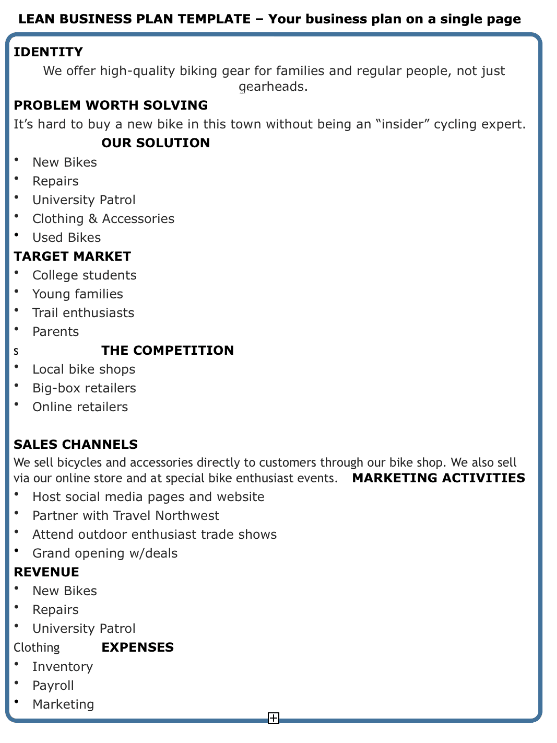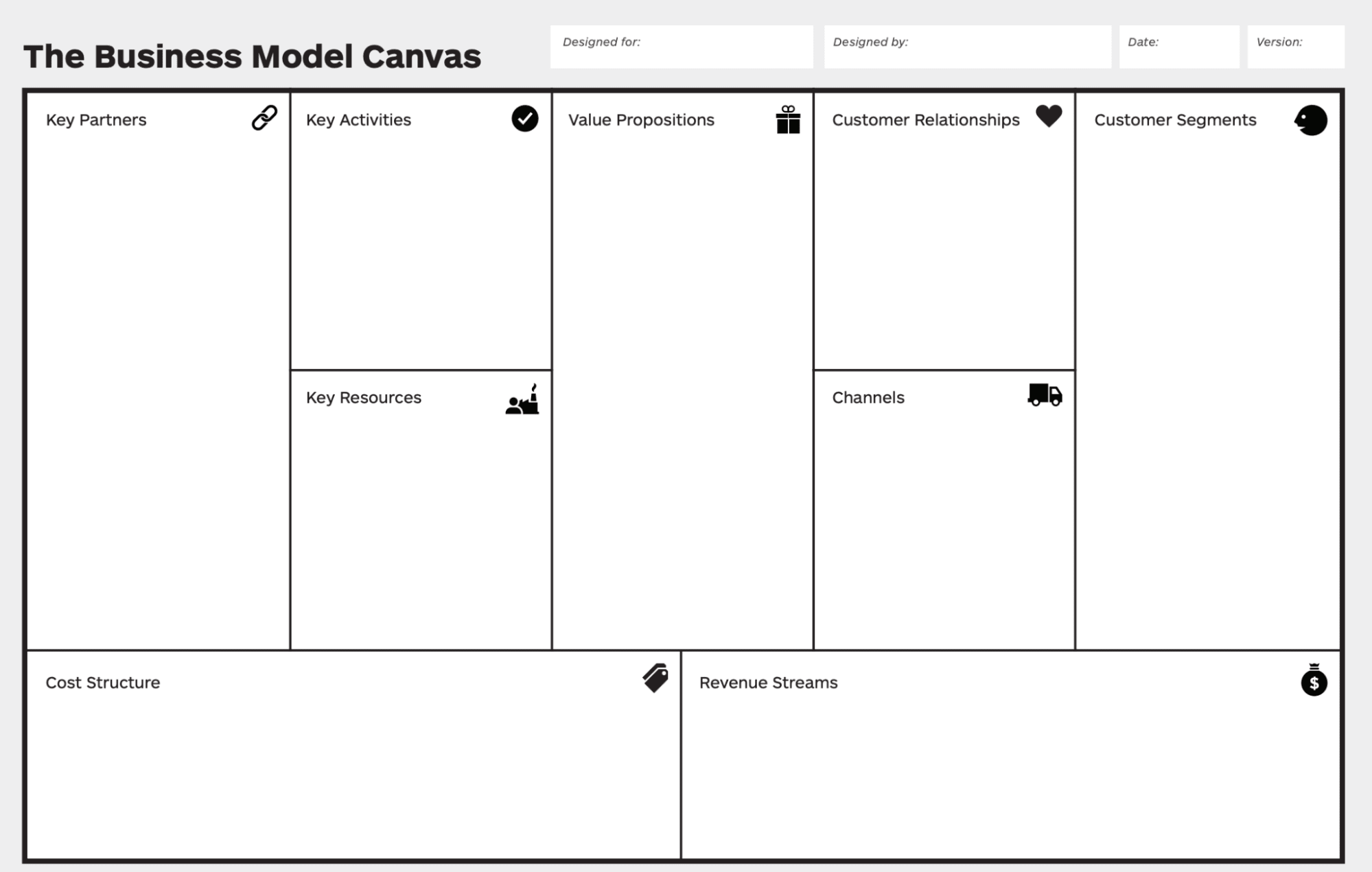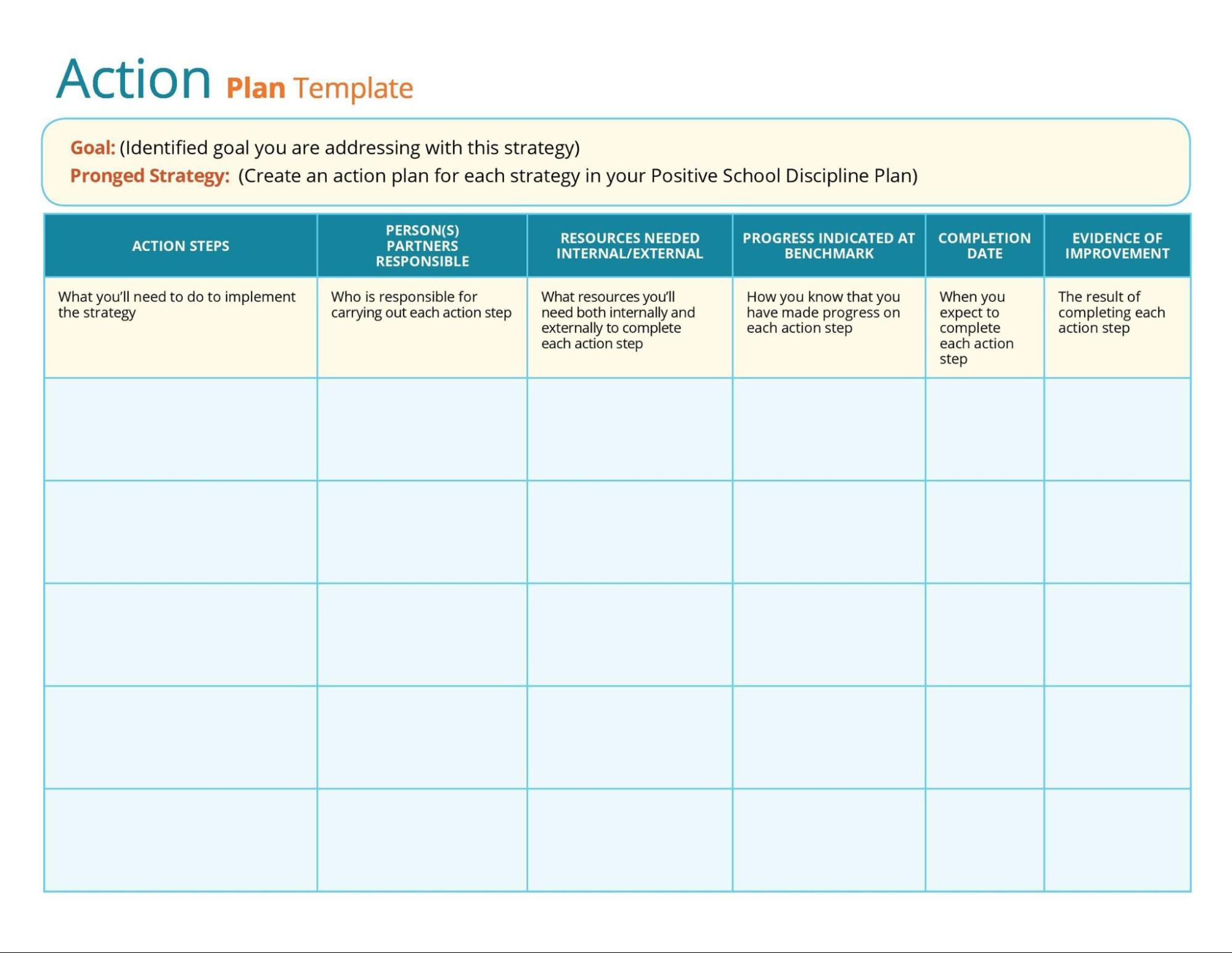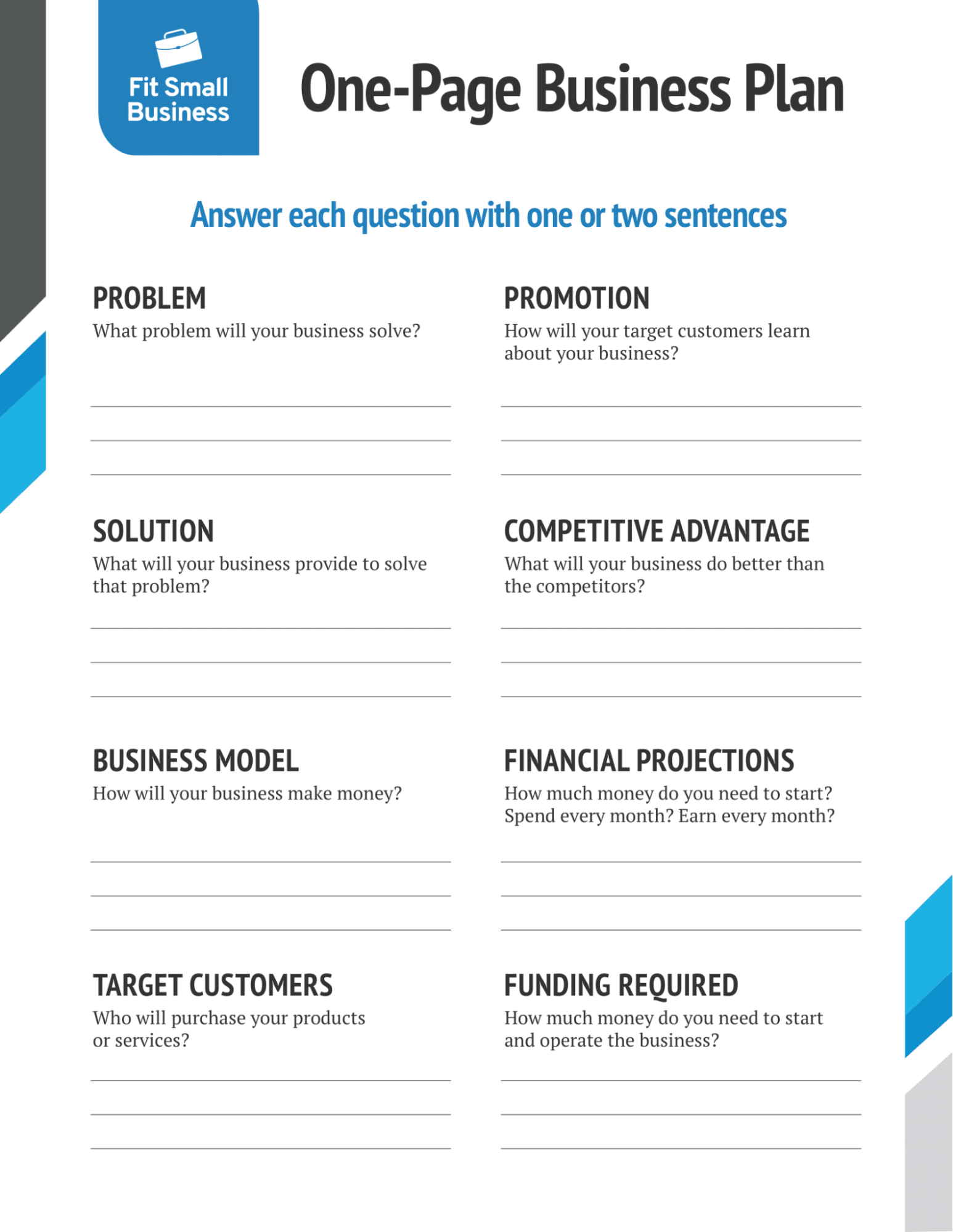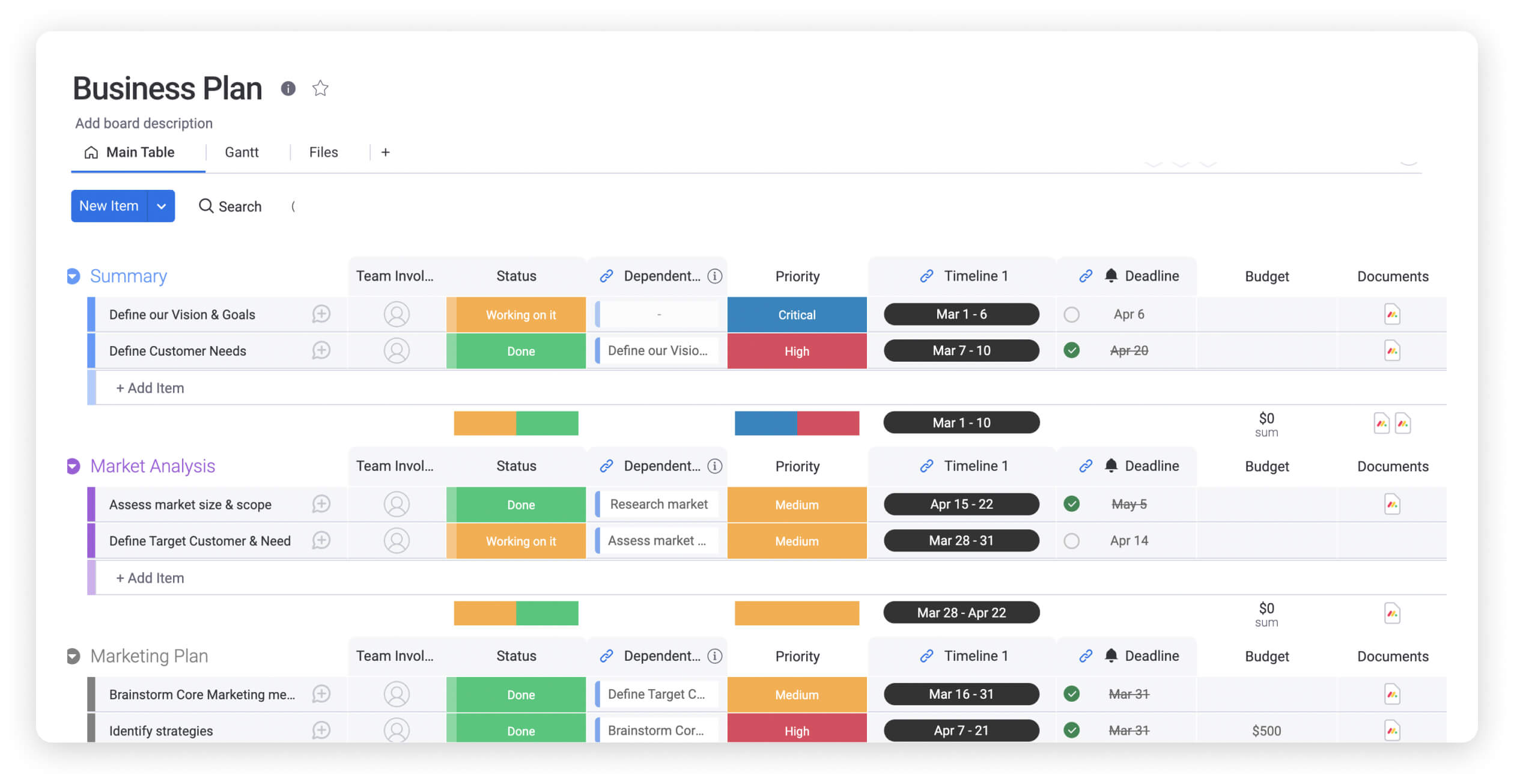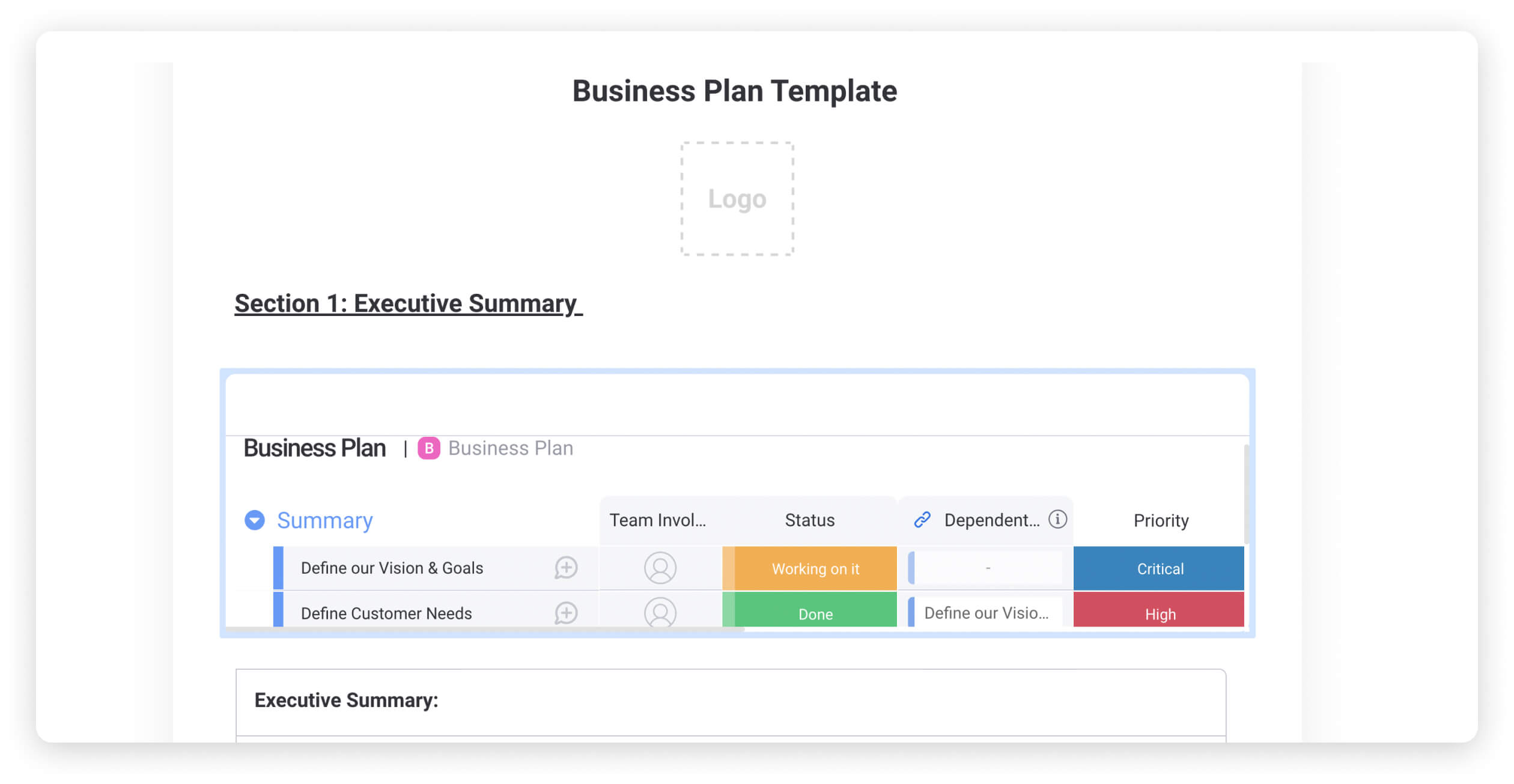A one-age business plan is a useful tool for providing an overview of your goals and targets and how you and your team will achieve them. Before you get into the details, a one-page business plan can help you feel out your ideas, set priorities, and provide an outline for a more extensive standard business plan.
You can also keep your single-page plan on hand to keep you laser-focused on the scope and objectives of your business at all times.
In this article, we’ll show you how to use a one-page business plan to create a robust foundation for your business and share some ready-to-use business plan templates.
What is a one-page business plan template?
A one-page business plan encompasses your entire business strategy condensed onto one-page. A one-page business plan template is a document that outlines a business’s strategies and goals.
A one-page business plan template helps you map out what elements are the most important to include and how you’ll organize them to make the most sense to the audience.A traditional business plan goes into great detail and could be dozens of pages long. With a one-pager, the idea is to condense all the important information into one high-level document.
However, if it’s a one-page business plan to hand out to prospective investors, you’ll likely focus more on something like financial projections.
In general, your one-page business plan can include:
- Vision statements and strategic objectives of your business
- Customer segments your business will serve
- Overview of the product or service you’ll provide
- Sales goals and marketing strategy
- High-level business overview of financial projections
Why use a one-page business plan template?
Understanding the benefits of writing a single-page business plan helps keep you focused when condensing lots of important information onto a one-page template.
Provide an overview of your business plan
A one-page plan provides you with an overview of everything you need to consider about your business venture. One-page plans provide a snapshot of multiple moving parts of your strategy and operations to keep you focused on what matters.
One-page business plan templates are a very useful starting point for developing a more detailed standard business plan. By creating a high-level document, you can begin to sketch out your ideas and assumptions and test them before spending lots of time developing a long business plan that you end up rewriting. Once you’re satisfied with your one-page plan, you have a step-by-step outline for a more in-depth version.
Manage operations and finances
As you grow your business, the operations and finances side of things often become more complex and difficult to manage. In times like these, when you need to make important decisions, a one-page business plan helps keep the core objectives of your venture in mind at all times. Nailing down your template means you don’t waste time deciding what the most important details are, so you can focus your time and energy into growing your business instead.
Synthesize business information
Another key benefit of having a one-page business plan on hand is the ability to provide anyone with a snapshot of your business whenever needed. This situation could apply to your management team, potential business partners, or potential investors who want a fast, easy-to-digest rundown of your business.
While you might have an elevator pitch ready, a one-page plan helps back up your claims, especially when it comes to items like financial projections or your cash flow statement. A one-page business plan template means it’s easy for you to quickly synthesize relevant information for the required audience. Simply drop the latest information into your template and get ready to present.
What are some examples of one-page business plans?
Before you write a one-page business plan, it’s helpful to get familiar with the various types of templates available and decide which one is best for your needs.
Startup one-page business plan template
Writing a business plan for a startup is a very different process than creating a plan for an established business. Startups are beginning from the very start of their journey with little historical data to go on. By nature, they need to be a lot more flexible with their ideas and decisions as they decide what works.
So a one-page plan for startups is more about laying the groundwork for more in-depth strategic analysis and taking an agile approach to developing a business model.
Business model canvas
The business model canvas is a well-known template for business plans. A single page is divided into squares, with each square representing an important component of the business strategy.
With a business model canvas, you’ll be able to quickly outline items like your target markets, value proposition, and revenue streams. Writing and comparing these sections on one-page allows you to validate your business model against your market analysis and quickly iterate on different elements of your business strategy.
Business idea action plan template
While many business plan templates focus on strategy and high-level objectives, some businesses require more focus on operations and action right from the start. In those instances, a business idea action plan template can be more beneficial.
This type of one-page business plan focuses on what you are going to do and how you are going to do it, rather than analysis and projections. It enables business owners to develop tactics for how they’ll design, develop, market, and sell their products or services.
Small business plan template
Small businesses are often operating with limited funding and narrow profit margins. These constraints make revenue targets and cost-effective operations critically important to success, especially for a service business.
When this is the case, a shorter business plan template for small businesses which focuses on defining your business niche, setting clear targets, and creating detailed timelines keeps your strategy aligned to the bottom line at all times.
monday.com’s one-page business plan template
Building a one-page business planning template from scratch involves a lot of key elements for consideration, but it doesn’t have to be a tricky process. Having a template to keep you on track enables you to effectively shape your strategy, goals, key activities, and targets in one place.
monday.com has created a one-page business plan template to help you create an effective one-page business plan that will keep your goals and targets at the front of your mind as you grow your business. The monday.com template includes:
- Digital visualization of your entire business strategy in one location, so you can easily share your plan and make updates
- Extensive customization options so you can create a business plan that aligns fully with your company branding
- The ability to add your own visuals such as tables, images, and videos that are relevant to your business plan
- The ability to collaborate in real-time with business partners and senior management on the creation and development of your one-page plan
- Integrations with popular business tools such as Excel and Outlook so you can move your business plan seamlessly from creation to execution
Have your one-page business plan created quickly and seamlessly with monday.com. Sign up for our free trial and select the one-page business plan template to stay aligned with your business objectives and core goals.
One-page business plan tips & tricks
Although a one-page business plan is not as extensive as a full-length business plan, there are some best practices you should follow to get the most out of it. With these tips and tricks, you’ll have a one-page business plan that’s realistic, accurate, and functional.
Understand your target market
Before you start outlining your business activities and tactics, it’s imperative that you fully understand your target market and your product-market fit. This understanding includes considerations such as customer price sensitivity, buying preferences, demographics, and more.
Without understanding your target market, building a business model can lead to sales targets and timelines that don’t materialize, a marketing plan or marketing materials that miss the mark, and unrealistic financial projections.
Fine-tune your products and services
Another key element of your business plan is the outline of the products and services you’ll offer. In this area, business owners need to thoroughly understand the cost of production, how to price products and services so they remain profitable, and how your offering measures up against competitors in the market.
By getting a firm grasp of your value offering, you can more accurately project costs, revenue, and profitability over the long term.
Keep your goals and projections realistic
When creating your one-page business plan, use the hard numbers regarding costs and budget to remain realistic about your business goals.
This approach applies to your timelines, too. Although your goals and targets may be ambitious, there needs to be an achievable timeline and resource allocation attached to them.
FAQs about one-page business plans
How do you write a business plan in one page?
It might be more beneficial for some business owners to start with a long business plan and then work on synthesizing it into a one-page template. That way, you can gain a deep understanding of your strategy before selecting the most important highlights for your one-page business plan.
You can also use visuals in place of written text where appropriate to save on space. For example, you can condense the highlights of your financial projections onto a single graph that’s understandable at a glance.
What is the primary characteristic of a one-page business plan?
The primary characteristics of a one-page business plan are clarity and brevity. Anyone who picks up your one-page plan should quickly get a clear idea of what your business does, its goals, and how you plan to achieve them. So it’s essential to keep all the information extremely clear and concise. Using a template like one on monday.com already gives you a leg up with a helpful outline.
What should a simple business plan include?
While every business is unique in some way, there are fundamental pieces of information you should incorporate into all simple business plans, including:
- Business mission and objectives
- Target audiences
- Competitor analysis
- Products/services outline
- Key operational considerations
- Time-bound financial projections
Depending on the purpose of your plan, you might choose to leave some items off the page. For example, if it’s for internal use by a wider team, you might omit elements like business financing plans, income statements, cost structure, etc.

